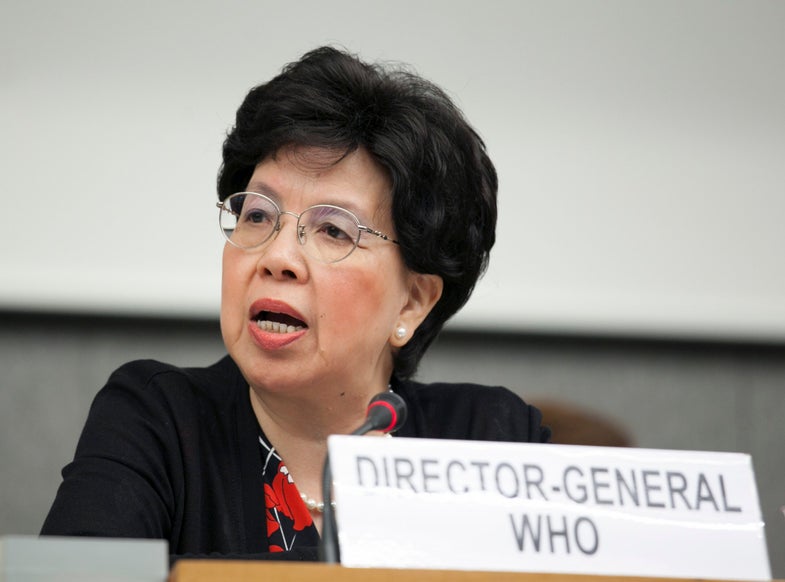The W.H.O Says Sexual Transmission Of Zika Is More Common Than They Thought
And women in Zika-stricken areas should have birth control available

At a press conference today, World Health Organization Director Margaret Chan said that based on investigations from several countries, sexual transmission of the Zika virus is more common than previously thought. However, W.H.O officials said that the main method through which Zika is spreading is still mosquitoes.
The evidence for a link between infection with the Zika virus and the development of microcephaly is growing stronger. In addition, Chan said that cases of Guillain-Barre syndrome–which can cause paralysis in adults and children–has been reported in nine countries in which the Zika virus is also present.
But while researchers continue to find strong correlations between Zika and microcephaly, a typically rare condition in which a baby is born with an abnormally small head, the W.H.O advised that health officials should not wait until a definitive link is established before making recommendations. As such, the W.H.O has advised pregnant women not to travel to areas where Zika is prevalent, something the CDC has also advised women in the U.S. against as well. And for women in Brazil and other areas afflicted with Zika, Chan recommended that women in those areas should have available to them “resources to help prevent or delay pregnancy.”
This announcement comes about a month after the W.H.O declared Zika and its possible association with microcephaly a Public Health Emergency of International Concern. In the future, researchers will continue to investigate this possible link, exactly how the Zika virus is transmitted, as well as a possible vaccine for the virus, which the W.H.O said might be either a few months or a few years away.
